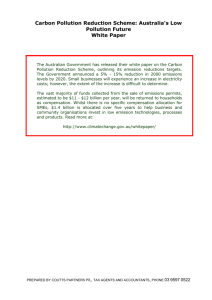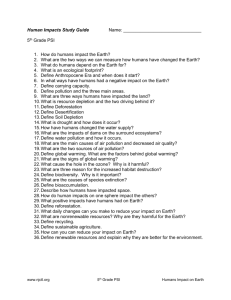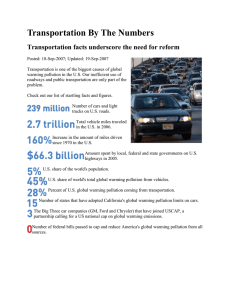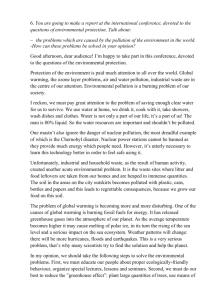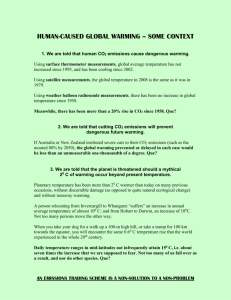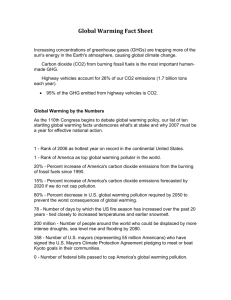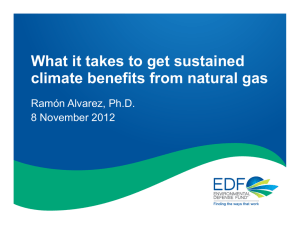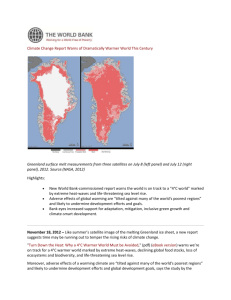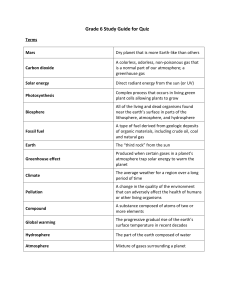Interview of Mr. François-Marie Bréon, by Xenia Tourki, O
advertisement
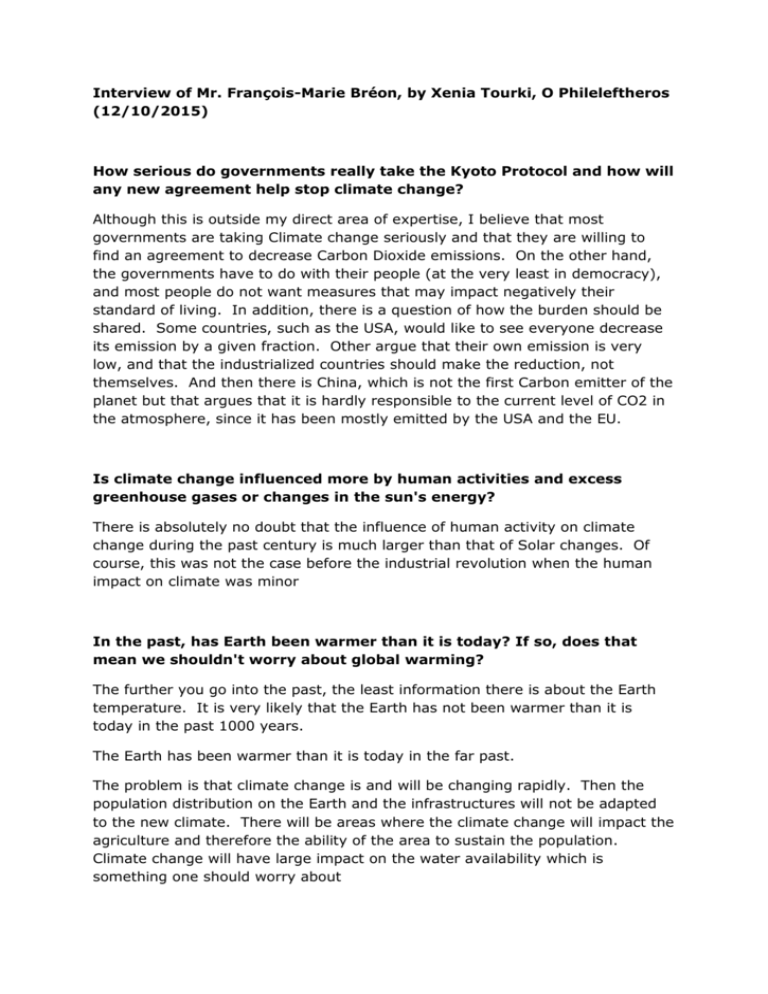
Interview of Mr. François-Marie Bréon, by Xenia Tourki, O Phileleftheros (12/10/2015) How serious do governments really take the Kyoto Protocol and how will any new agreement help stop climate change? Although this is outside my direct area of expertise, I believe that most governments are taking Climate change seriously and that they are willing to find an agreement to decrease Carbon Dioxide emissions. On the other hand, the governments have to do with their people (at the very least in democracy), and most people do not want measures that may impact negatively their standard of living. In addition, there is a question of how the burden should be shared. Some countries, such as the USA, would like to see everyone decrease its emission by a given fraction. Other argue that their own emission is very low, and that the industrialized countries should make the reduction, not themselves. And then there is China, which is not the first Carbon emitter of the planet but that argues that it is hardly responsible to the current level of CO2 in the atmosphere, since it has been mostly emitted by the USA and the EU. Is climate change influenced more by human activities and excess greenhouse gases or changes in the sun's energy? There is absolutely no doubt that the influence of human activity on climate change during the past century is much larger than that of Solar changes. Of course, this was not the case before the industrial revolution when the human impact on climate was minor In the past, has Earth been warmer than it is today? If so, does that mean we shouldn't worry about global warming? The further you go into the past, the least information there is about the Earth temperature. It is very likely that the Earth has not been warmer than it is today in the past 1000 years. The Earth has been warmer than it is today in the far past. The problem is that climate change is and will be changing rapidly. Then the population distribution on the Earth and the infrastructures will not be adapted to the new climate. There will be areas where the climate change will impact the agriculture and therefore the ability of the area to sustain the population. Climate change will have large impact on the water availability which is something one should worry about How do we expect climate to evolve in the future? There is no doubt that the Earth mean temperature will continue to rise. This will affect most regions, including the Mediterranean. The precipitation will likely change also, but there is less consensus on how it will change. There is a fait consensus that dry regions will become drier. This includes Cyprus. How will a small rise in sea level affect people? Clearly, that depends on the area and the slope of the Sea shore. In many regions, the sea shore is rather steep so that a rise in sea level will have little impact. Unfortunately, there are also very densely regions that are barely above sea level (I am thinking about Bengladesh in particular, but there are other examples) where a rise in sea level will have a large impact on the population (frequent floods with an impact on the agriculture and the disease spread). Are the temperature records showing global warming is happening reliable? Yes. There is no doubt that global warming is happening. The change since ≈1970 is very clear even if there is inter-annual variability due to chaotic variations of the atmosphere and oceans (including El Nino), and sporadic large volcanic eruptions. What can we do about global warming and climate change? Decrease energy consumption Switch from fossil fuel to renewable energy (solar, wind) For countries that are stable enough, develop nuclear power Eat less meat Do you think that the financial cost VW had, after the revelation of the scandal, will ensure that it will never happen again? This question is very far from my area of expertise. I tend to say no, but my answer is not better than anybody’s. Since one of the biggest car producers in the world by-passed emission laws, isn't it possible that other companies did that as well? Is the supervision system reliable? Again, this is far from my area of expertise. From what I understand, VW could not comply at the same time with the consumption regulations (which drives the CO2 emissions that impact climate change) and the pollution regulation (which drives CO and NOx emissions that impact health). VW made the choice of by-passing the pollution regulation. In a way, it decided to give more weight to the climate than to the health of people. May be this is because VW knew that people could check on their consumption by themselves (how often do we have to put gas for a number of kilometres) while it was very difficult to check on the pollution
